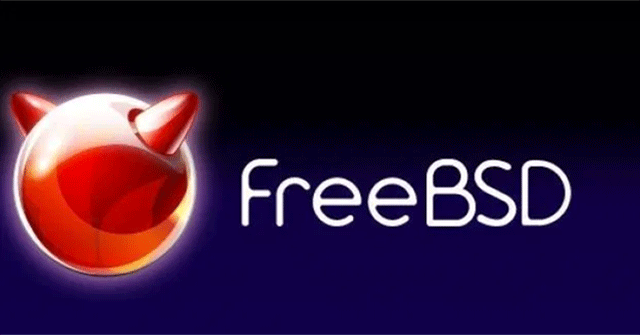Minimum hardware requirements for installing FreeBSD
The hardware requirements for installing FreeBSD vary depending on the FreeBSD version and hardware architecture. Supported hardware and device architectures will be listed on the Release Information page of the FreeBSD website.
- 10 PC operating systems can replace Windows
- Top Linux distros for newbies
- How to manage remote Linux server with SSH
http://www.FreeBSD.org/releases/index.html Installing FreeBSD requires at least 64MB of RAM and 1.5GB of free hard drive space. However, this is only a minimal installation, so there is almost no free space left after installation. RAM requirements vary depending on usage. Dedicated FreeBSD systems can run at least 128MB of RAM while desktop systems only have at least 4GB of RAM.

The processor requirements for each structure can be summarized as follows:
amd64
This is the most common type of processor on desktop and laptop computers, also known as x86-64 architecture.
There are two main suppliers of amd64 processors: Intel® (making Intel64 processor) and AMD (manufacturing AMD64).
Examples of amd64 compatible processors: AMD Athlon ™ 64, AMD Opteron ™, multi-core Intel® Xeon ™, Intel® Core ™ 2 and newer processors.
i386
This architecture is 32 bit x86 architecture. Almost all floating point i386-compatible processors and all Intel 486 and above processors are supported.
FreeBSD will take advantage of Physical Address Extensions (PAE) on CPUs that support this feature. If unknown, PAE is a memory management feature for the x86 architecture that allows the CPU to directly access physical memory more than 4GB. Multiplying PAE with the feature enabled will erase memory above 4GB and allow the system to use it. This feature controls device drivers and other features of FreeBSD that are used.
ia64
The currently supported processors are Itanium® and Itanium® 2. Supported chipsets include HP zx1, Intel® 460GX and Intel® E8870. Both single processor configuration (Uniprocessor - UP) and symmetric multi-processor (Symmetric Multi-processor - SMP) are supported.
pc98
How the following hardware is supported:
- NEC PC-9801/9821 series with almost all i386 compatible processors, including 80486, Pentium®, Pentium® Pro and Pentium® II
- All compatible i386 processors from AMD, Cyrix, IBM and IDT
- Epson PC-386/486/586 Series, compatible with NEC PC-9801 series
- NEC FC-9801/9821 and NEC SV-98 series
Unsupported hardware:
- High resolution mode
- NEC PC-98XA / XL / RL / XL ^ 2 and NEC PC-H98 series are only supported in normal mode (PC-9801 compatible)
- FreeBSD and Bus New Extend Standard Architecture SMP related features (NESA) are used in PC-H98, SV-H98 and FC-H98 series
Powerpc
All Apple® Mac® New World ROM systems with integrated USB are supported. SMP is supported on machines with multiple CPUs.
A 32-bit kernel can only use the first 2GB of RAM.
sparc64
Supported FreeBSD / sparc64 systems are listed at the FreeBSD / sparc64 project.
http://www.freebsd.org/pl platforms / sparc.html SMP is supported on all systems with more than 1 processor. A dedicated disk is required because it cannot be shared with another operating system during installation.
You should read it
- ★ Network knowledge: WAN hardware
- ★ How to get rid of the 'System Requirements Not Met' message on Windows 11
- ★ How to fix Game Bar 'PC Doesn't Meet Hardware Requirements for Captures' error in Windows
- ★ How to get Windows 11 Dev builds in case your PC doesn't meet the minimum hardware requirements
- ★ How to create Windows 11 installation USB for computers that do not meet TPM 2.0 hardware